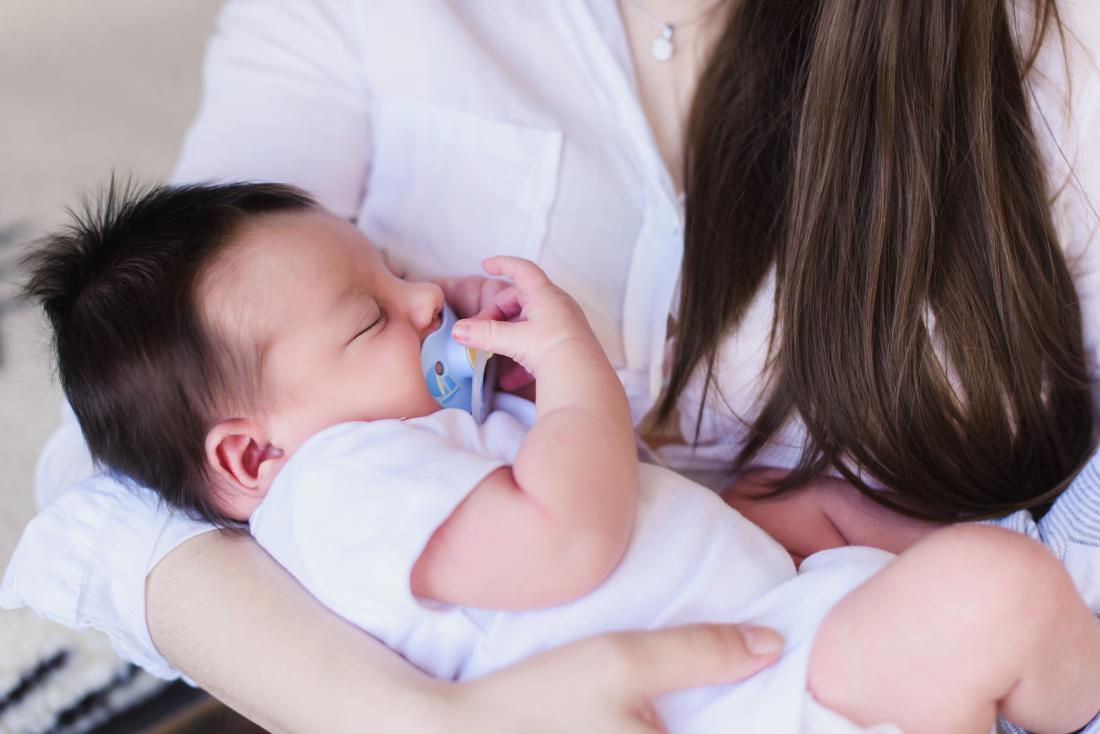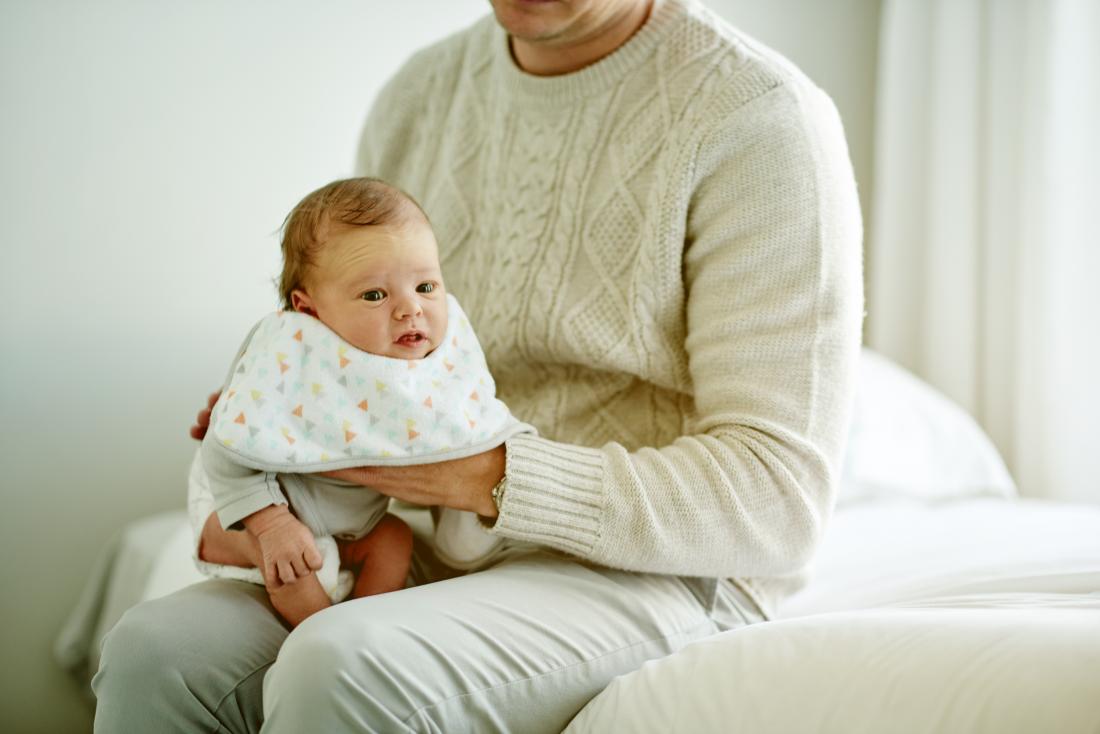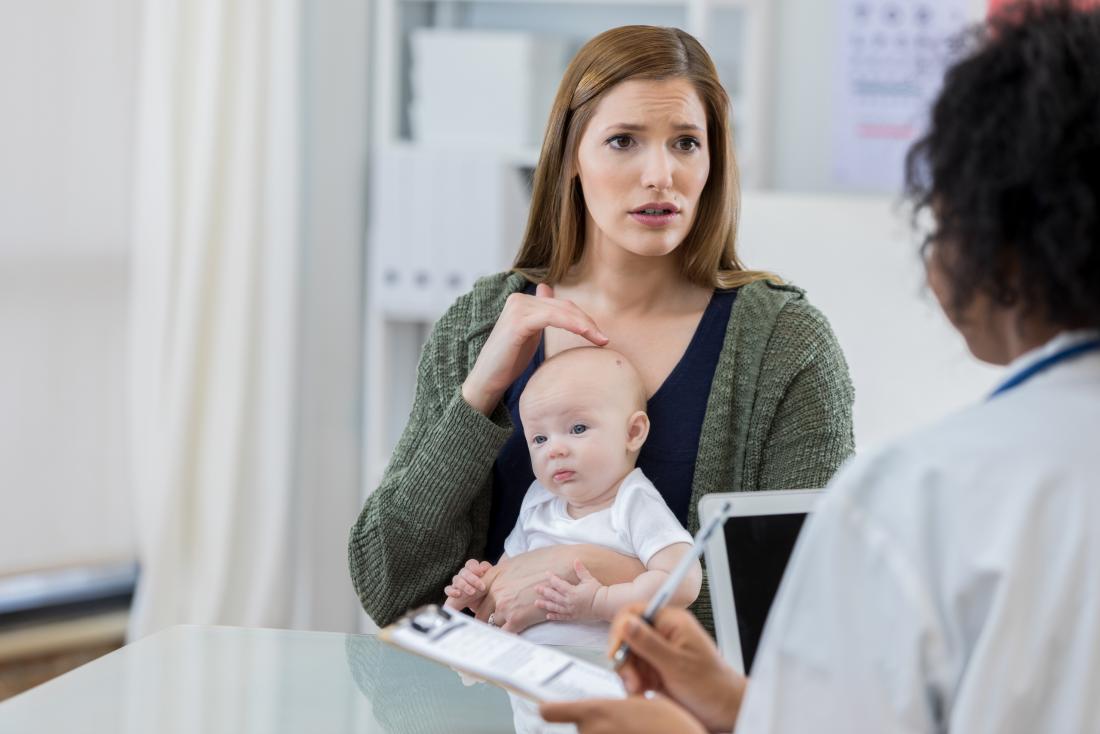How To Get Baby To Stop Hiccuping
We include products we think are useful for our readers. If you buy through links on this page, we may earn a small commission. Here's our process.
There are several ways to stop or prevent hiccups in newborns. Taking breaks from feeding to burp and using pacifiers can help, for example. It is important to remember that most babies get hiccups in their first year, and they are not usually a cause for concern.
The hiccups happen when the baby's diaphragm contracts. This forces air out through closed vocal chords, creating the hiccupping sound.
A person may be concerned that hiccups are causing a newborn discomfort. In this article, we explore the factors that trigger hiccups in newborns, the best ways to stop and prevent them, and when to see a doctor.

Sucking on a pacifier may help with a baby's hiccupping.
Hiccups do not normally harm a baby. While adults may find hiccups uncomfortable, they tend to cause less distress in babies.
It is usually fine to leave a baby to stop hiccupping. If they do not stop, it is a good idea to speak to a doctor.
When a person is concerned and does not want to let newborn hiccups run their course, they may find the following strategies helpful:
Taking a break to burp the baby
When the stomach fills with air, it may push on the diaphragm, causing spasms. Taking a break from feeding to burp the baby may reduce the amount of air in their stomach. This can prevent hiccups.
According to the American Academy of Pediatrics, it is a good idea to burp bottle-fed babies every time they consume 2 to 3 ounces.
If a baby is breast-fed, it is a good idea to burp the baby while switching between breasts.
Using a pacifier
Sucking on a pacifier may help to relax the diaphragm and stop hiccupping.
Feeding them gripe water
Gripe water is a mixture of herbs and water. It is traditionally used to treat colic and other stomach problems.
The herbs usually contained in gripe water include:
- ginger
- fennel
- chamomile
- cinnamon
If stomach issues are responsible for hiccups, some people believe that gripe water may help. However, no scientific evidence currently supports this treatment.
Because the risks are low, a person may decide to give gripe water a try. Several brands are available for purchase online.
Rubbing the baby's back
Rubbing their back and rocking the baby back and forth can help them to relax. This may stop the spasms that cause hiccups.
What not to do
Some well-known remedies for hiccups are entirely rooted in tradition and have no scientific basis. These include:
- making a person jump
- pulling their tongue
- making them sip water while upside down
It is a bad idea to try these, and many other home remedies, on a baby. These supposed remedies can distress a baby and may even be dangerous. They are unlikely to stop the hiccups.

Hiccupping is generally not a cause for concern.
Authors of a
Hiccups happen when something causes the diaphragm to spasm, and the vocal cords quickly shut. Air is forced out through the closed vocal chords, creating the hiccupping sound.
The diaphragm is a large muscle that runs across the bottom of the rib cage. It moves up and down as a person breathes.
Hiccups in babies tend to occur for no apparent reason, but feeding can occasionally cause the diaphragm to spasm. They may happen when a baby:
- overfeeds
- eats too quickly
- swallows too much air
These factors can cause the baby's stomach to expand. As it expands, it pushes against the diaphragm, triggering the spasms that lead to hiccups.
If hiccups happen frequently and cause distress, they may result from an underlying health condition, such as gastroesophageal reflux (GER). This occurs when partially digested food and stomach acid come back up through the food pipe. As these fluids pass the diaphragm, they may irritate it and trigger spasms.
Feeding or stomach issues may not always cause hiccups. The diaphragm may spasm for unknown reasons.
Hiccups are often not preventable, but following the strategies below may help:
- feeding the baby before they become very hungry, to keep them calm
- feeding the baby frequently in small amounts
- sitting the baby upright for half an hour after each feeding
- repositioning the bottle so that no air is near the teat
- ensuring that the baby's mouth is latched over the whole nipple

A doctor should be consulted if a baby frequently gets hiccups.
Hiccups are not normally a cause for concern in babies under 12 months old.
Speak with a doctor if hiccups are frequent or they seem to distress the baby because this can indicate an underlying health condition.
GER may cause frequent, uncomfortable hiccups. A baby may have GER if they also:
- cry more often than usual, particularly around feedings
- arch their back excessively during or after feedings
- spit up more often than usual
Anyone who suspects that a baby may have GER should speak with a doctor. The condition is easy to treat.
Newborn hiccups are not usually a cause for concern. Most babies have hiccups in their first year. Many of the likely causes relate to feeding.
Following feeding best practices may reduce hiccupping, and some home remedies may also help.
If hiccupping is frequent, or if it causes distress or other symptoms, speak with a doctor. It is also a good idea to contact a doctor if hiccups frequently occur after a baby turns one year old.
Read the article in Spanish.
How To Get Baby To Stop Hiccuping
Source: https://www.medicalnewstoday.com/articles/321932
Posted by: katoprieture.blogspot.com

0 Response to "How To Get Baby To Stop Hiccuping"
Post a Comment